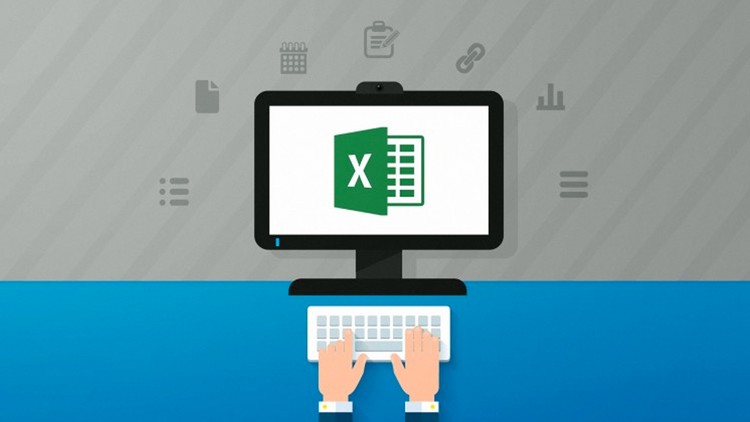
When it comes to SBIR accounting, there’s a lot of “theories and myths” that float around.
Making government contractors feel okay about how their keeping up with their accounting even though it’s not Federal Acquisition Regulations (FAR) or DCAA compliant.
After all what is compliant?
The DCAA defines compliance as follows:
“To comply with the regulations regarding proper financial management, government contractors must satisfy the Defense Contract Audit Agency (DCAA), which is responsible for performing all audits for the DoD, and for providing accounting and financial advisory services to DoD components responsible for procurement and contract administration.”
Well that isn’t the clearest message.
What if you don’t have a grant the DoD and it’s from the NIH, NSF, or another government agency?
Do the same rules apply?
SBIR accounting is no walk in the park, and for this reason we created a list of these frequently thought myths.
1. “Excel is Enough…”
Having an adequate accounting system for your SBIR award by using Excel is enough to do all your accounting.
No way! Think about it.

You’re accumulating data (transactions) each time you make a purchase, sell a product, perform research, pay a bill, etc. It seems logical to just list your transactions in a spreadsheet and send it over to your accountant.
The problem is that you can’t generate internal financial information needed for financial feasibility, tax returns, etc. because this data needs to be manipulated to provide what you need.
In other words, you generated data that does not give you what you need and now you and your accountant need to spend more time re-configuring information to serve a purpose. Excel does not make an adequate accounting system given the requirements specified by the government.
Sure, it’s easy, but it will cost more than you think. You wouldn’t spend hours looking up outdated research, so why spend time building a plethora of financial information that can’t be used dynamically to give you insights on your business and meet the government’s standards.
SBIR accounting with excel is not the best choice.
2. “QuickBooks Can Solve All My Problems!”

Not totally true.
While QuickBooks can solve many problems and lead to an adequate accounting system, there are other requirements that can’t be handled by the software such as rates, labor distribution, adequate timekeeping, contract limitations and more.
What’s worse is if you have a Phase II award and use QuickBooks Online, you have a weak job cost system further exacerbating the deficiencies.
So now you’re generating transactions, paying a monthly fee, and maintaining spreadsheets offline to help support a system that has a high risk of being out of compliance.
There is definitely a better way.
QuickBooks can be a useful tool if you know how to properly use its features.
Do you have any questions about your award?
3. “Accepting the QuickBooks Chart of Accounts is Adequate…”
Surprise, this is a big no in SBIR accounting.
The default charts of accounts embedded in QuickBooks used upon setup will be the beginning of the end.
There is no semblance of compliance between a default chart of accounts and an adequate chart of accounts.
For example, an adequate accounting system needs to accumulate costs by direct (by project), indirect (by cost pool) and unallowable costs.
There’s no such thing in Quickbooks and since your chart of accounts is the backbone of your accounting system, recovering from this choice is very difficult. You will need to have your data file restructured or start over.
4. “It’s Too Expensive to Have An Adequate Accounting System”

Not true at all.
Yes, there are firms that will charge you a fortune to bring you into compliance and enjoy emphasizing and sharing your pain.
The reality? While there are intricacies involved in an adequate accounting system, complying with your federal award is nothing more than best practices.
You should be doing this any way, but make sure you understand what is really needed first.
For example, if you chart of accounts is a complete disaster, you can have your data file restructured which will go a long way towards becoming compliant.
Add an accounting manual (policies and procedures), and adequate timekeeping, you have most of the foundation.
5. “I have an FFP (fixed) Contract, I don’t need an adequate accounting system.”
First things first, remember, best SBIR accounting practices!
Even when you have a contract at a fixed price, future work may not be fixed prices.
Therefore, if you’re in business awhile and go for a CPFF contract, the government would expect a functioning accounting system.
If you can’t show this, they’ll choose another government contractor that does.
The difference between FFP and CPFF is a tad confusing. Here’s a quick overview of what sets them apart…

A CPFF contract may require you to draw funds based on direct costs incurred.
A FFP on the other hand may be lump sum payments.
An adequate accounting system helps to track billable direct costs and avoid double billing in a CPFF world.
When having an FFP contract you’re normally required to demonstrate how you computed your rates.
So don’t be fooled, having an FFP contract doesn’t give you freedom from having an adequate accounting system.
6. “It’s Okay to Wait Until the Last Minute to “Plug” My Indirect Rates into my Proposal”
No, no and no. Not a good idea.
Plugging the difference between the solicitation limit and what your direct costs is gives no indication of what your costs will really be.

Waiting until last minute to “plug” your rates could leave you with an indirect budget that is insufficient for your indirect needs.
Your cash flow and profit from the award could end up being negatively affected if that’s the case.
If your accounting system is inadequate, the point is moot anyway.
7. “The Safe Harbor Indirect Rates Are the Best for My Business”
The safe harbor indirect rates are not necessarily the best for your business.
As I say to my clients, don’t you want to know the truth?
While some solicitations will limit your indirect rates to the safe harbor, other agencies and phases provide more flexibility.
Time and time again, awarded underestimate their indirect rates costing profit and precious cash flow.
With an adequate accounting system, this exercise is easy. Obviously, the contrary is true.
In my more 15 years in SBIR accounting, indirect rates are rarely on the higher end. For unfunded companies, this is dangerous to the firm’s survival.
Your accounting system should position you to recover all your allowable costs.
Simplicity is not in your best interests in this case.
8. “I Don’t Need a Payroll Service”
Yes, you do need a payroll service.
This is one I never understand. For a very affordable price, it makes sense to have your employees’ withholding taxes timely deposited, unemployment taxes paid, paychecks properly classified, and W2’s and tax returns timely filed.

The cost for an error is substantial from the IRS as you are holding taxes in trust for others which makes everyone very sensitive.
Finally, you save time, have a clearer audit trail to employees’ labor costs used for labor distribution since this is connected to timekeeping.
This is the classic penny-wise, pound-foolish cliché.
9. “I Can Change My Employees’ Timesheets”
Never, never, never!
Only your employee can change their timesheet, with a signature and explanation (adequate automated systems require this).
Employee timesheets should not look like a creative canvas of numbers and doodling, but rather, should be well organized and structured so the proper cost objectives are indicated and time can be accurately posted to the correct direct (by project) indirect and unallowable cost accounts.
Your employees should be adequately trained as part of onboarding orientation and at least a semi-annual primer (documented in a meeting agenda).
Adequate timekeeping is not only a requirement, but a best practice in SBIR accounting.
After all, labor drives most of your costs, profit and value.
If you want to learn more about how to account for timekeeping you can check out our course, SBIR Academy
10. “Research & Experimentation Tax Credits are for the Big Firms”
This is far from true.
This is a nice benefit for small firms that engage in qualified research activities and have unfunded research.
For corporations, unused tax credits may be carried back 2 years and forward 20.
For S-corporations and LLC’s, the credits pass through to the owners, creating a dollar-for-dollar tax reduction (that’s the great thing about credits) – however – watch out for the dreaded alternative minimum tax.

Offsetting payroll tax with tax credits
A new advantage to tax credits is the ability for qualifying firms to use the R&D credit to offset your 941 payroll taxes.
This is a little tricky, learn more about this by reaching out to us!
Do you have any questions about your award?
11. “Being a Cash-Basis Taxpayer Makes the Most Sense”

This is a tough one, the answer is sometimes and it depends.
If your business has a cost-plus-type contract (CPFF), this may not be a big problem if your expenses are paid and your federal voucher payments are received in the same accounting period.
Fixed price contracts (FFP) tend to be more problematic as payments received from the government seem to always be in advance of your direct cost burn rate (plus indirect rates), therefore, resulting in taxable income.
The good news is good planning can maximize this benefit and simplicity. However, not many people plan and the chips fall randomly.
12. “I Can Depreciate Direct Equipment”
Nope, this is a big no no!
In most cases, if you were reimbursed by the U.S. Government for direct equipment, you don’t own the property.
Therefore, you can’t depreciate what you don’t own. If you’re reimbursed for the total cost of the equipment, you don’t have a cost basis to depreciate since your book value would be zero.
The general rule is you depreciate equipment at the lower of its cost or fair market value (at the time placed in service), not higher.

Therefore, there is nothing to depreciate.
I must admit, I’ve seen some awardees and accountant’s find creative ways of depreciating something that is not owned or has no book value.
13. “I Can Use My Tax Depreciation for My Indirect Rates”
This is a maybe.
If you’re using tax depreciation based on generally accepted accounting principles (GAAP), then you’re okay.

However, this is rare, so chances are you’re using the modified accelerated cost recovery system (MACRS) and/or expense election (IRC Section 179) depreciation that will result in an annual difference in your indirect rate calculations.
This requires a book v. tax depreciation schedule to be maintained.
Proper tax planning and fixed asset budgeting along with a book v. tax depreciation schedule will help to solidify you’re are properly budgeting for depreciation expense in your firm.
14. “If My Executive Compensation Exceeds the NIH Limit, I Can Record the Difference Under F&A”
The direct portion (hourly effective rate based on level of effort) of time can only be billed up to the NIH Executive Compensation Limit.
The indirect portion may be up to the amount actually paid (again, level of effort) provided that the compensation is considered reasonable.
So… that would-be no.
Calculations should be made based on direct hours each pay period to properly record the excess executive compensation.
15. “When My Contract Expires, I Can Run My Excess Costs Through Indirect Rates”

This would be a major problem in your system. Not to mention risk with the United States Government.
Costs do not change their color because your period of performance ended.
A direct cost is a direct cost regardless of the POP provided you are still working on the same project.
If your company changes direction with a new or revised statement of work for an internal project, then the nature of the cost may change, so be careful.
16. “I Can Keep My Books on the Cash Basis”
No way!
In SBIR accounting, your books must be on the accrual basis.
If you don’t see accounts payable, accounts receivable, or accrued expenses (especially payroll and vacation), your costs are not accumulating in the right time period to compute your indirect rates, contract billings, and income taxes (unless you’re a cash basis taxpayer).

This is especially important for CPFF contracts as costs should be billed as incurred instead of when cash is paid.
Keeping track of costs incurred is extremely difficult in a cash basis accounting system.
17. “I Can Do My Own Books”
This is possible, but very difficult.
Just like I don’t drift into nanotechnology research, you shouldn’t underestimate the importance of accurate data.

For example, inadequate timekeeping approvals, transactional coding, and poor accounting structure lead to major problems down the road.
A streamlined SBIR accounting system will help you fully understand how your data flows leading to effective decision making and grant and indirect rate management.
Maintaining inaccurate information just doesn’t make sense. However, rest assured, many startups and small businesses have very “interesting” data.
18. “Let’s Wait Until Phase II to Bring My System Up-to-Date”
This is far from a good idea.
Showing the government, a working system helps demonstrate compliance, as well as trains you and your staff the importance of properly coding transactions, recording time, and billing the government.
In other words, this becomes part of your company’s culture.

Waiting always costs you more money because there are transactions that need to be corrected, accounts that need to be restructured, and payroll and billings that need to be reconciled.
Rest assured, trust me when I say you can pay less now and more later by keeping your system up-to-date from the start.
Conclusion
SBIR accounting might not be rocket science, but its also not a piece of cake either.
As you can see people like to create these ideas in their head of certain situations and practices that are bizarre.
Be sure to avoid making the same costly mistakes that some companies do by making sure you have an adequate accounting system.
If you want to learn more about the right way to handle your books as a government contractor (and get more in-depth teaching about SBIR accounting we covered in this post you can take a look at our course, SBIR Academy.
Do you have any questions about your award?


